Traveling Safe

Is it safe to carry large amounts of cash when traveling ?
When it comes to traveling, there are a variety of considerations that must be taken into account. One such consideration is whether or not it is safe to carry large amounts of cash while on the go. In this article, we will explore the potential risks and benefits associated with carrying large sums of money when traveling. One of the most significant risks associated with carrying large amounts of cash is the possibility of theft or robbery. This risk can be particularly high in areas where crime rates are high or in countries where pickpocketing and other forms of theft are common. Another risk associated with carrying large amounts of cash is the possibility of loss or disaster. For example, if your wallet or purse is lost or stolen, you may lose all of the cash that you were carrying with you. Similarly, if you are involved in an accident or natural disaster, your cash could be damaged or destroyed. Carrying large amounts of cash can also be risky due to fluctuating currency exchange rates. If you are traveling to a country with a different currency than your own, you may find that the value of your cash decreases over time as exchange rates change. Despite these risks, there are also some potential benefits to carrying large amounts of cash when traveling. These include convenience, no fees or charges, and accessibility in situations where other forms of payment may not be readily available. However, there are also several alternatives that travelers can consider, such as credit cards, debit cards, prepaid cards, and mobile payment apps like Apple Pay and Google Wallet. In conclusion, carrying large amounts of cash when traveling can be both risky and beneficial depending on various factors. While it may offer convenience and accessibility in certain situations, it also poses significant risks such as theft, loss, and fluctuating currency exchange rates. As such, travelers should carefully consider their options and weigh the potential benefits against the potential risks before deciding whether or not to carry large amounts of cash while on the go.
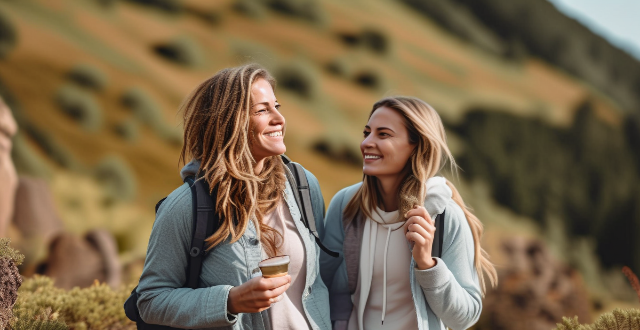
What are the best ways for women to avoid dangerous situations while on a trip ?
The article provides a comprehensive guide for women to stay safe while traveling. It emphasizes the importance of researching the destination, staying connected, trusting instincts, keeping belongings safe, being aware of surroundings, traveling with friends or joining groups, and learning self-defense techniques. Each section offers key points that highlight specific actions women can take to ensure their safety during their travels.
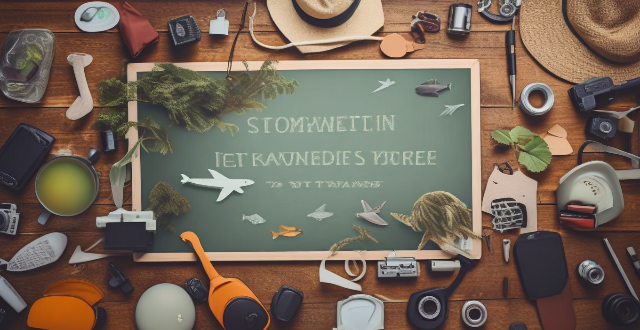
What are the best ways to avoid pickpockets and theft while traveling ?
When traveling, it's important to take precautions to avoid pickpockets and theft. Research your destination, keep valuables close, stay aware of your surroundings, don't flash your valuables, trust your instincts, use locks and safes, be careful with your phone and camera, and consider travel insurance. By following these tips, you can reduce the risk of falling victim to pickpockets and theft while traveling.

What are some tips for eating street food safely while traveling ?
When traveling, street food can be a delightful way to explore new flavors and cultures. However, it's essential to take precautions to ensure that your culinary adventures don't lead to illness. Here are some tips for eating street food safely while traveling: 1. Research Before You Go 2. Look for Cleanliness 3. Choose Busy Vendors 4. Stick to Cooked Foods 5. Avoid Raw Produce 6. Drink Bottled Beverages 7. Watch How the Food is Cooked 8. Trust Your Instincts

How can women deal with sexual harassment or unwanted attention while traveling ?
Dealing with Sexual Harassment or Unwanted Attention While Traveling: - Be Aware of Your Surroundings - Dress Appropriately - Use Body Language - Learn Key Phrases in the Local Language - Keep Your Belongings Close - Stay in Groups - Trust Your Instincts - Seek Help When Needed - Document the Incident - Report Incidents When Appropriate

How can I stay safe while traveling alone in a new city ?
When traveling alone in a new city, prioritizing your safety is crucial. Here are some tips to help you stay safe while exploring unfamiliar places: - Research your destination and learn about its culture, customs, and potential dangers. Check for any travel advisories or warnings issued by your government. - Be prepared by having all necessary documents, such as passports, visas, and travel insurance. Keep copies of important documents in a separate place from the originals. - Stay connected with loved ones back home and keep them updated about your whereabouts. Use a reliable mobile network or Wi-Fi to maintain communication. - Trust your instincts and avoid situations that make you feel uncomfortable or unsafe. If something doesn't feel right, remove yourself from the situation immediately. - Take precautions with money and valuables by using a money belt, carrying only what you need, and avoiding displaying wealth in public. - Be aware of your surroundings at all times. Pay attention to exit routes, suspicious individuals, and any potential threats. - Use reputable transportation services like licensed taxis or ride-sharing apps. Avoid accepting rides from strangers or unmarked vehicles. - Dress appropriately for the local culture and climate. Avoid wearing flashy clothing or accessories that could attract unwanted attention. By following these tips, you can significantly reduce the risks associated with traveling alone in a new city and enjoy a safe and memorable adventure.

How do I navigate dietary restrictions while traveling ?
How to navigate dietary restrictions while traveling When traveling with dietary restrictions, it's important to do your research beforehand, pack snacks, be flexible, ask for substitutions, and take care of yourself. Researching your destination can help you find restaurants that cater to your needs, while packing snacks will ensure you have something to eat on the go. Being open-minded about new foods and flavors is also key, as well as asking for substitutions if needed. It's important to be aware of hidden ingredients in dishes and to take care of yourself both physically and mentally during your trip. By following these tips, you can navigate dietary restrictions while traveling with ease and enjoy your trip without any worries.

Is it safe for women to use ride-sharing services like Uber when traveling ?
Ride-sharing services like Uber have become increasingly popular among travelers due to their convenience and affordability. However, safety concerns have been raised, especially for women who may be more vulnerable to certain risks. In this response, we will explore the safety aspects of using ride-sharing services for female travelers. Ride-sharing services like Uber have implemented several safety features to ensure the well-being of their passengers. These include driver screening, GPS tracking, in-app communication, and emergency assistance. Women can further mitigate potential risks by verifying the driver's identity, sharing trip details, choosing well-lit areas, and staying alert during the ride. Overall, ride-sharing services like Uber can be safe for women when traveling, provided that they exercise caution and utilize the safety features offered by these platforms. By following best practices such as verifying driver identity, sharing trip details, choosing well-lit areas, and staying alert during the ride, women can significantly reduce potential risks associated with using ride-sharing services. It is also essential to report any safety concerns to the appropriate authorities and the ride-sharing company to help improve overall safety standards for all users.

What are the most unique culinary experiences one can have while traveling ?
Traveling offers numerous opportunities to indulge in unique culinary experiences. Some of the most unique culinary experiences one can have while traveling include: 1. Trying traditional dishes and visiting local markets to sample street food and buy fresh produce. 2. Dining at authentic restaurants and participating in cultural festivals to learn about a country's food traditions. 3. Trying unusual foods such as insects, exotic fruits, and unusual meats, as well as sampling street food from different countries. 4. Tasting local wines and spirits, as well as enjoying traditional beverages that are an essential part of a country's culture. Overall, traveling allows people to step out of their comfort zone and try new things, including unique culinary experiences that are worth trying.

How do I find authentic ethnic restaurants when traveling abroad ?
Finding authentic ethnic restaurants while traveling abroad is a great way to immerse oneself in different cultures. Here's how you can find genuine ethnic restaurants during your travels: 1. Research before you go by reading reviews online, joining travel forums, and consulting local food blogs. 2. Ask locals for recommendations, including hotel staff, taxi drivers, shopkeepers, and people in public spaces. 3. Observe the crowd and look for places filled with locals, especially during lunchtime. 4. Dine like a local by eating at off-peak hours, trying regional specialties, and ordering family-style. 5. Use technology such as apps and maps to search for highly-rated restaurants in the area and filter by distance or rating. 6. Be open to new experiences and step out of your comfort zone to try authentic cuisine that may be different from what you're used to. By following these steps, you'll increase your chances of finding truly authentic ethnic restaurants while traveling abroad. Enjoy your gastronomic adventures!
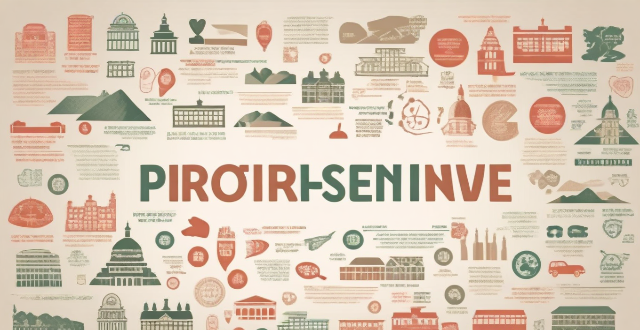
What steps should women take to research the safety of a destination before traveling ?
The provided text offers a comprehensive guide for women to research the safety of a destination before traveling. The steps include online research such as checking government travel advisories and joining travel forums, seeking professional advice from travel agents and security experts, planning ahead by making copies of important documents and informing someone about your itinerary, packing smart with items like personal alarms and door stop alarms, being prepared on the ground by dressing appropriately and learning basic phrases in the local language, and trusting your instincts to avoid potentially dangerous situations. By following these steps, women can enhance their safety while traveling and be better informed about potential risks.

How can women ensure they have access to medical care and support in case of illness or injury while traveling ?
How Can Women Ensure They Have Access to Medical Care and Support in Case of Illness or Injury While Traveling? Traveling can be an exciting adventure, but it's important to ensure that you have access to medical care and support in case of illness or injury. Here are some tips for women to ensure they have access to medical care while traveling: 1. Research Before You Go: Before embarking on your journey, research the local healthcare system and facilities. Look for hospitals, clinics, and pharmacies in the area you will be visiting. Make a list of emergency numbers and keep them with you at all times. 2. Get Travel Insurance: Consider purchasing travel insurance that includes medical coverage. This will give you peace of mind knowing that you are covered in case of an unexpected illness or injury. 3. Pack a First Aid Kit: Pack a first aid kit with essential items such as bandages, antiseptic wipes, pain relievers, and any prescription medications you may need. It's also a good idea to bring along copies of your prescriptions in case you need to refill them while traveling. 4. Stay Healthy: Take steps to stay healthy while traveling. Wash your hands frequently, eat nutritious meals, drink plenty of water, and get enough sleep. Avoid risky behaviors such as excessive alcohol consumption or participating in dangerous activities without proper safety gear. 5. Seek Help When Needed: If you do become ill or injured while traveling, don't hesitate to seek medical attention. Many countries have English-speaking doctors and nurses who can provide assistance. If you are unable to communicate effectively with local healthcare providers, consider using translation services or seeking out expatriate communities for support. In conclusion, ensuring access to medical care and support while traveling is crucial for women's health and safety. By doing your research beforehand, getting travel insurance, packing a first aid kit, staying healthy, and seeking help when needed, you can enjoy your travels with peace of mind knowing that you are prepared for any potential emergencies.

How can women protect themselves from pickpockets and theft while traveling ?
Traveling, especially for women, comes with risks such as pickpocketing and theft. To protect themselves, women should stay alert, dress appropriately, secure their belongings, stay connected, be cautious about trusting strangers, and choose safe accommodations. By following these guidelines, they can reduce their risk of falling victim to theft and enjoy a safe journey.

How can I ensure safe travel to an island during COVID-19 ?
To ensure safe travel to an island during COVID-19, research the destination's situation, choose a safe mode of transportation, pack essential items, follow safety guidelines, and stay informed about local regulations.
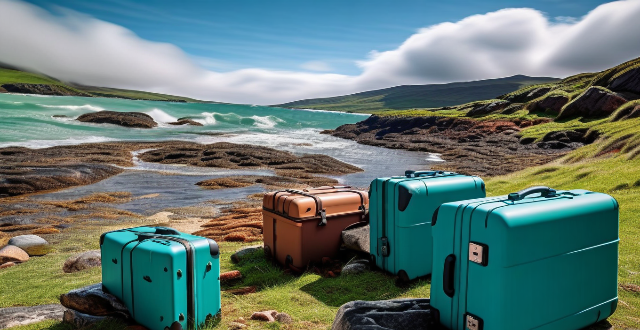
How can I protect my valuables while traveling ?
Protecting valuables while traveling involves using secure bags, being discreet, utilizing hotel safes, digitizing important documents, staying vigilant, distributing valuables, having insurance coverage, minimizing cash carrying, leveraging technology, and choosing safe accommodations.
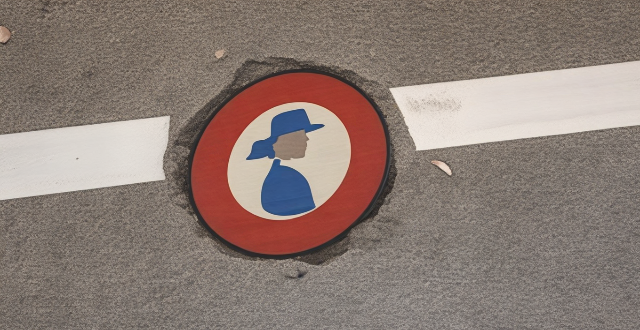
What are the top safety tips for women traveling alone ?
Traveling alone as a woman can be empowering, but safety is crucial. Research your destination, stay connected with friends and family, choose accommodations carefully, dress appropriately, trust your instincts, and consider carrying self-defense tools. Stay prepared, aware, and confident to handle unexpected situations.
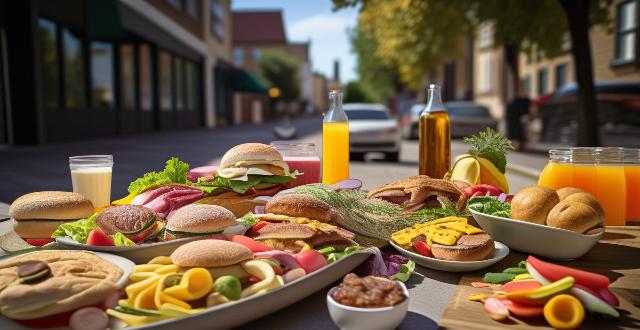
Is it safe to eat street food when traveling in China, and how can I avoid getting sick ?
Street food in China can be a delightful culinary experience, but it's important to take precautions to avoid food safety issues. Risks include bacterial contamination, food poisoning, and allergic reactions. However, street food offers cultural immersion, affordability, and diverse options. To minimize health risks, choose reputable vendors, avoid risky foods, practice good hygiene, start with small portions, and drink bottled water. By being cautious, you can safely enjoy the delicious street food in China.

What are some essential travel safety tips for international tourists ?
Traveling to a foreign country can be an exciting adventure, but it's important to prioritize safety during your journey. Here are some essential travel safety tips for international tourists: ## Research Your Destination Before embarking on your trip, research the destination thoroughly. Familiarize yourself with local customs, laws, and cultural norms. This will help you avoid any misunderstandings or unintentional offenses that could put you in harm's way. ### Learn Basic Phrases in the Local Language Knowing how to say simple phrases like "hello," "goodbye," "thank you," and "I don't understand" in the local language can go a long way in helping you communicate with locals and navigate your way around. ### Check the Weather Forecast Be prepared for any weather conditions by checking the forecast before you leave. Pack appropriate clothing and gear to ensure your comfort and safety throughout your trip. ## Stay Informed About Safety Concerns Stay up-to-date on any safety concerns or travel warnings related to your destination. The U.S. Department of State maintains a website with current information on safety issues and advisories for travelers. ### Register With Your Embassy or Consulate Register your travel plans with your embassy or consulate so they can contact you in case of an emergency or natural disaster. This is especially important if you plan to visit remote areas where communication might be limited. ## Be Cautious With Your Belongings When traveling abroad, it's crucial to take precautions to protect your belongings from theft or loss. Here are some tips to keep your valuables safe: ### Keep Your Valuables Close at Hand Carry only what you need when sightseeing or exploring new places. Keep your passport, cash, credit cards, and other valuables secure in a money belt or hidden pocket. ### Use Hotel Safes Wisely Hotel safes are convenient for storing valuable items while you're out and about. However, be aware that not all hotel safes are foolproof. Some may have vulnerabilities that could allow thieves to access your belongings. Always exercise caution when using hotel safes and consider bringing along a portable lock for added security. ### Be Mindful of Your Surroundings Stay alert and aware of your surroundings at all times. Avoid displaying expensive jewelry or electronics in public places, as these items can attract unwanted attention from pickpockets and thieves. If possible, try to blend in with the local crowd by dressing conservatively and avoiding flashy accessories. ## Follow Local Laws and Customs Respecting local laws and customs is essential for staying safe while traveling abroad. Here are some tips to help you navigate this aspect of international travel: ### Obey Local Laws Familiarize yourself with the legal system and laws of the country you're visiting. This includes understanding the penalties for breaking the law, which can vary widely depending on the country. Remember that what might be legal in your home country could be illegal elsewhere. ### Respect Local Customs Be mindful of local customs and traditions when interacting with locals. Dress appropriately for religious sites and respect their rules regarding photography and behavior. Additionally, be aware of social norms regarding physical contact (such as handshakes or hugs) and follow them accordingly. ## Seek Medical Attention When Needed If you become ill or injured during your trip, seek medical attention promptly. Here are some tips to help you stay healthy while traveling: ### Pack a First Aid Kit Bring a basic first aid kit with essential items such as bandages, antiseptic wipes, pain relievers, and any prescription medications you might need. This will help you handle minor injuries and illnesses without having to search for medical supplies in an unfamiliar place. ### Know Where to Go for Medical Help Research nearby hospitals and clinics before you leave home so you know where to go if you need medical assistance during your trip. It's also a good idea to purchase travel insurance that includes coverage for medical emergencies.
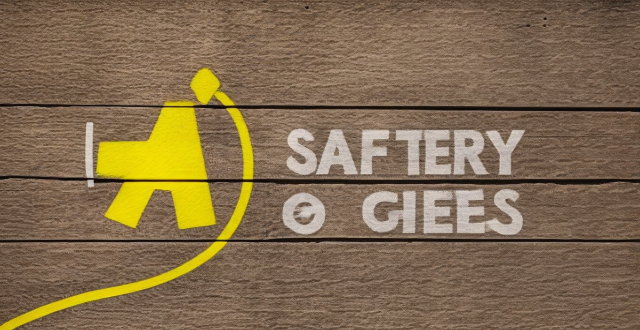
What safety measures should I take while traveling with my pet ?
Traveling with pets requires planning and safety measures to ensure a pleasant journey. Essential tips include visiting the vet, packing medication, using comfortable carriers, bringing familiar items, controlling temperature, providing regular meals and water, ensuring identification and emergency preparedness, researching legal considerations, and being aware of environmental factors. Tailor these suggestions to meet the specific needs of your pet for a safe and enjoyable trip.

How does PPE contribute to creating a safe work environment ?
PPE's Role in Creating a Safe Work Environment Personal Protective Equipment (PPE) is vital for establishing a safe work environment by providing a physical barrier between workers and potential hazards, reducing the risk of injuries and illnesses. PPE contributes to safety in various ways, including preventing direct contact with hazardous substances, reducing exposure to harmful agents, providing physical support and protection, enhancing visibility and awareness, promoting compliance with regulations, encouraging responsible behavior, and contributing to ergonomic well-being. By implementing and maintaining the use of PPE, employers can significantly reduce the number of work-related injuries and illnesses, creating a safer and more secure work environment for all employees.

How do I know if my home canned foods are safe to eat ?
How do I know if my home canned foods are safe to eat? When it comes to home canned foods, safety is of utmost importance. Here are some tips on how to ensure that your canned food is safe to eat: 1. Check the expiration date: Always check the expiration date printed on the can before opening it. If it has expired, it should not be consumed. 2. Look for signs of spoilage: When you open a can of food, look for any signs of spoilage such as mold, discoloration, or off-odors. If you see any of these signs, discard the can immediately. 3. Use proper storage: Canned foods should be stored in a cool, dry place away from direct sunlight and heat sources. Make sure the lid is tightly closed and secure to prevent air from entering the can. 4. Follow proper canning techniques: If you are new to canning, it is important to follow proper canning techniques to ensure safety. This includes using sterile jars and lids, heating the food to at least 180°F (82°C), and allowing the food to cool completely before storing it in the refrigerator or pantry. 5. Read labels carefully: Labels on canned foods provide important information about ingredients, nutritional content, and storage instructions. Make sure to read them carefully before consuming the food. By following these tips, you can ensure that your home canned foods are safe to eat. Remember that even if you follow all of these guidelines, accidents happen sometimes; therefore, always be aware of potential hazards and take appropriate precautions when handling food.
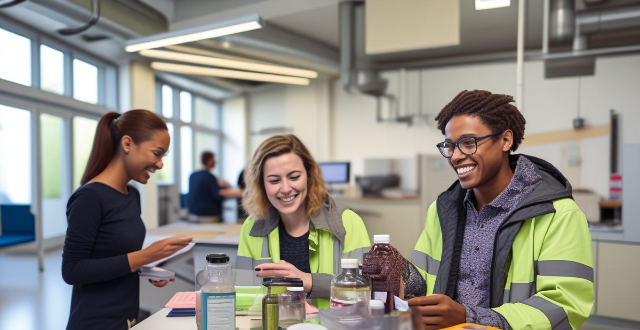
How can individuals contribute to the safe management of hazardous chemicals in their community ?
The article outlines various ways individuals can contribute to the safe management of hazardous chemicals in their community. It emphasizes the importance of education, staying informed, taking action, prevention and preparedness, and community collaboration. Individuals are encouraged to research common hazardous chemicals, identify potential health effects, monitor local news, attend public meetings, report leaks and spills, support strict regulations, participate in cleanup efforts, implement safe practices at home, create an emergency plan, build partnerships, and encourage transparency. By taking these steps, individuals can play a crucial role in ensuring the safe management of hazardous chemicals within their communities.

What are the key factors in designing a safe and stable building structure ?
The text provides a comprehensive overview of the key factors that must be considered when designing a safe and stable building structure. It emphasizes the importance of site selection and analysis, foundation design, structural system selection, material selection, and construction quality control in ensuring the well-being of inhabitants and protecting against natural disasters. The text also highlights the need for proper workmanship, inspections, testing, and maintenance to maintain the integrity of the structure over time. Overall, the text serves as a valuable resource for architects, engineers, and builders involved in the design and construction of safe and stable buildings.

What vaccinations should I get before traveling to Africa ?
When planning a trip to Africa, it's essential to consider the necessary vaccinations to ensure your health and safety. The continent is vast, and the required immunizations can vary depending on which countries you will visit. Here are some general recommendations: - Yellow Fever Vaccine - Polio Vaccine - Hepatitis A Vaccine - Hepatitis B Vaccine - Rabies Vaccine - Meningococcal Meningitis Vaccine - Typhoid Fever Vaccine - Japanese Encephalitis Vaccine - Cholera Vaccine - Malaria Prevention It's crucial to consult with a healthcare provider or a travel medicine specialist at least 4-6 weeks before your trip to discuss your individual needs based on your itinerary, duration of stay, and personal medical history. They can provide personalized recommendations and ensure you have all the necessary vaccinations for a safe journey.

What precautions should be taken while traveling during the COVID-19 pandemic ?
The text provides a comprehensive list of precautions to take while traveling during the COVID-19 pandemic. These include monitoring health, maintaining hand hygiene, wearing face coverings, practicing social distancing, using respiratory etiquette, cleaning and disinfecting surfaces, ensuring food safety, organizing travel documentation, choosing safe accommodations and transportation, and staying informed about the latest information on COVID-19. By following these guidelines, travelers can help protect themselves and others from the virus.

What are some ways to save money on food while traveling ?
Here are ten ways to save money on food while traveling: 1. Eat local street food for affordable and delicious options. 2. Cook your own meals if you have access to a kitchen or cooking facilities. 3. Pack snacks from home to avoid expensive airport or convenience store prices. 4. Avoid tourist traps and look for places where locals eat for authentic and affordable cuisine. 5. Use discount apps and coupons to save money on food and drink at local establishments. 6. Share meals with friends or family members to enjoy a variety of dishes without spending too much money. 7. Drink tap water instead of buying bottled water to save money. 8. Take advantage of hotel breakfasts to save money on breakfast costs. 9. Visit local markets for fresh produce, meats, and other ingredients that are cheaper than grocery stores or restaurants. 10. Choose budget-friendly restaurants that cater to locals rather than tourists for good food at reasonable prices.
![Is it safe to use public transportation in [insert destination] ?](/images/2kge/12a0d1b2-4bf4-4f1c-88f7-dd24da6e6ff6.png)
Is it safe to use public transportation in [insert destination] ?
The article discusses the safety concerns associated with using public transportation in a specific destination. It highlights factors such as crime rates, crowdedness, maintenance and upkeep, and accessibility that can impact the safety of public transportation. The article also provides tips for staying safe on public transportation, including researching crime rates, choosing reputable providers, being aware of surroundings, avoiding using public transportation alone or at night, and considering accessibility needs. Overall, the article suggests that while public transportation is an essential part of urban life, it is important to be cautious and take necessary precautions to ensure a safe travel experience.

How can I save money while traveling abroad ?
The text offers advice on saving money while traveling abroad. It suggests planning ahead, using public transportation, eating local food, staying in hostels or Airbnbs, using free Wi-Fi, shopping at local markets, taking advantage of discount cards, and avoiding peak season as ways to reduce costs without sacrificing the travel experience.